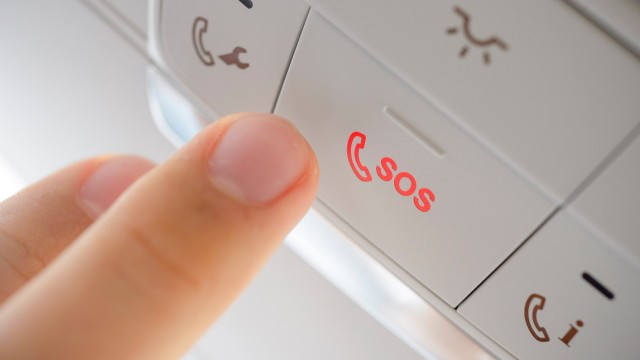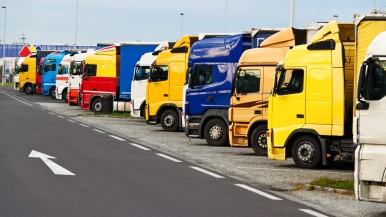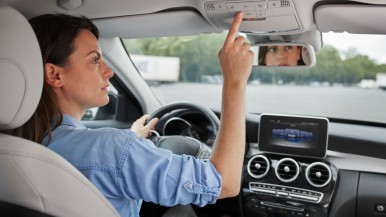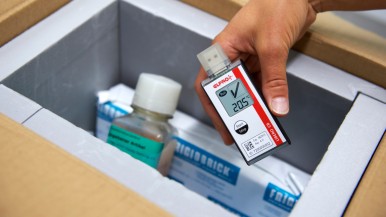Frankfurt – Fast assistance is crucial when a car accident occurs. "Emergency Calls" - known as eCalls for short - are of enormous advantage when rescue is needed. In the event of an accident or emergency, the emergency call system for vehicles establishes a voice connection to an emergency call point to request assistance either automatically or at the push of a button. The statutory eCall system, known as EU 112 eCall, differs from the emergency call systems from private providers. EU 112 eCall are routed directly to the public rescue coordination centers, which then mobilize the rescue services. Private eCall providers process incoming emergency calls in their emergency centers and forward emergency calls to the public rescue coordination centers. EU 112 eCall is installed as standard in all new car models launched in the EU for the first time since March 31, 2018. Bosch has been offering its private eCall service since 2012 and is a pioneer in this area, so that by now more than ten car manufacturers now trust the company to handle their emergency calls. Bosch eCall not only meets the relevant EU standards and all applicable data protection requirements, but also offers five times more service and security.
Bosch Service Solutions is a leading global supplier of Business Process Outsourcing for complex business processes and services. Using the latest technology and the Internet of Things, the Bosch division develops integrated and innovative service solutions in the areas of Mobility, Monitoring, and Customer Experience. Around 10,000 associates at 36 locations support national and international customers in around 40 languages, primarily from the automotive, travel and logistics sectors as well as information and communication technology.
Additional information is available online at www.boschservicesolutions.com
The Bosch Group is a leading global supplier of technology and services. It employs roughly 418,000 associates worldwide (as of December 31, 2024). The company generated sales of 90.3 billion euros in 2024. Its operations are divided into four business sectors: Mobility, Industrial Technology, Consumer Goods, and Energy and Building Technology. With its business activities, the company aims to use technology to help shape universal trends such as automation, electrification, digitalization, connectivity, and an orientation to sustainability. In this context, Bosch’s broad diversification across regions and industries strengthens its innovativeness and robustness. Bosch uses its proven expertise in sensor technology, software, and services to offer customers cross-domain solutions from a single source. It also applies its expertise in connectivity and artificial intelligence in order to develop and manufacture user-friendly, sustainable products. With technology that is “Invented for life,” Bosch wants to help improve quality of life and conserve natural resources. The Bosch Group comprises Robert Bosch GmbH and its roughly 490 subsidiary and regional companies in over 60 countries. Including sales and service partners, Bosch’s global manufacturing, engineering, and sales network covers nearly every country in the world. Bosch’s innovative strength is key to the company’s further development. At 136 locations across the globe, Bosch employs some 87,000 associates in research and development.
Additional information is available online at www.bosch.com, www.bosch-press.com.






